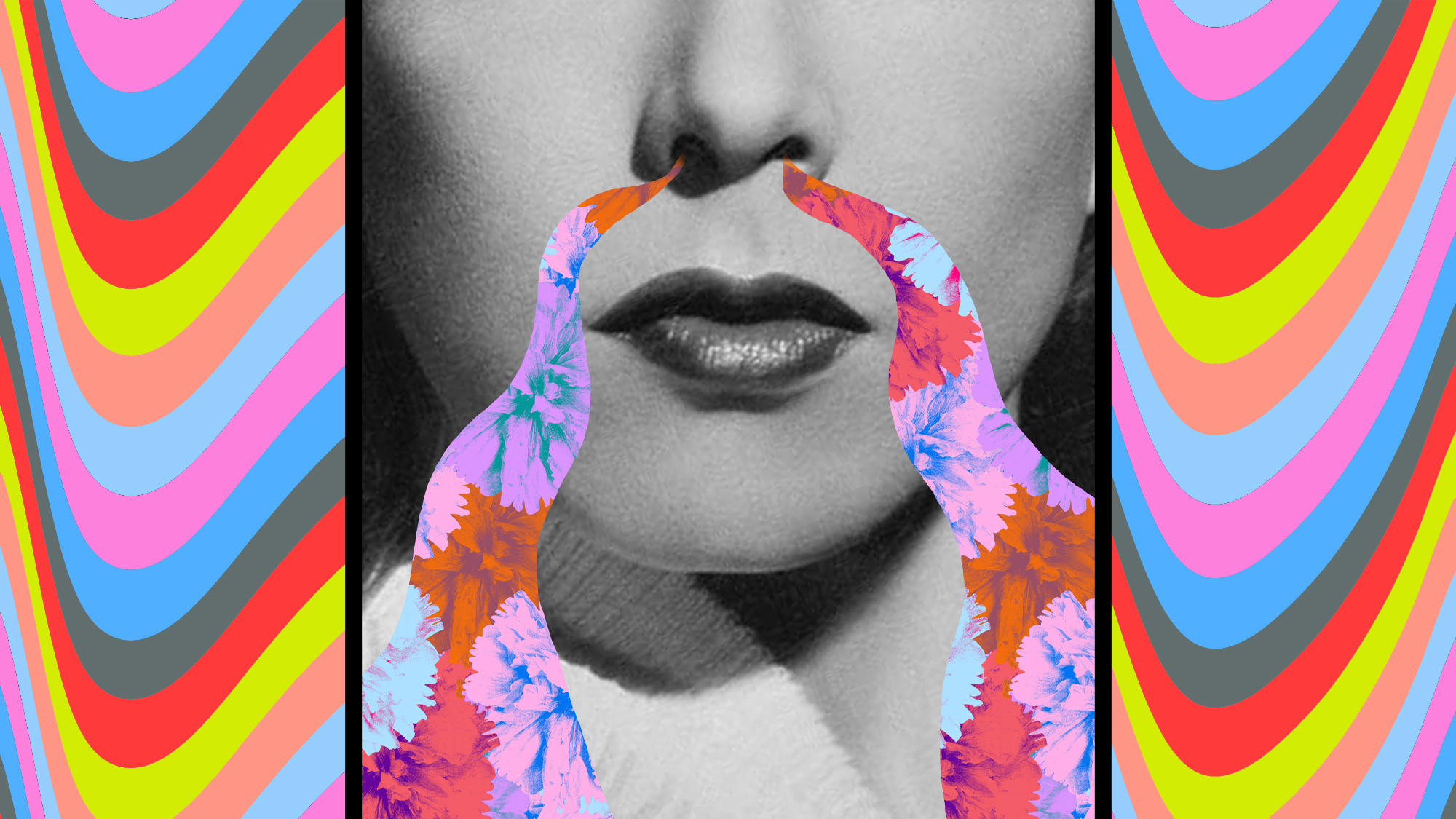In Head Trip, PopSci explores the relationship between our brains, our senses, and the strange things that happen in between.
OUR SENSES ARE FALLIBLE. Our eyes can be fooled by everything from mirages to pictures of dresses that may or may not be blue and black (or white and gold), our ears by “endlessly rising” tones and “speaking” noise, and our sense of smell by…wait, can you come up with an olfactory illusion? If not, well, you’re not alone, because some scientists doubt that they exist at all.
Perhaps you’re thinking of “smelling” smoke when there is none in your environment. That would be a hallucination, not an illusion. The generally accepted distinction is that an illusion represents a misinterpretation of a stimulus, while a hallucination involves no stimulus at all.
“The notion of olfactory illusions is not something that resonates with us,” Clare Batty, a psychology professor at the University of Kentucky, wrote in 2010. Her paper “What the Nose Doesn’t Know” caused quite a stir among her peers at the time for arguing that there are no olfactory illusions at all—only hallucinations.
Batty’s paper approached the sense of smell from a philosophical point of view, exploring how one of the things that seems to distinguish smell from other senses is that it “fails to exhibit a kind of organization” because “it’s not the case that particular objects are represented. It’s really easy for me to see that phone on my desk and know I’m seeing my phone, not any old phone.”
Scent, she argued, does not make the same distinction: “We can get that there’s something or other out there: coffee, say.” But whereas sight and hearing identify and locate that object—we see a cup of coffee in front of us over here, or hear the pot boiling on the stove over there—Batty says that smell does not offer the same clues. In fact, you would have to move around and sniff in several locations before discovering the source of the fresh-brewed aroma.
In the paper, Batty argued that illusions arise from misidentification or misinterpretation of specific objects—and thus, “if olfactory experience doesn’t give us objects at all, then, by definition, it can’t present illusions.” It’s important to note that this argument doesn’t extend to phenomena induced by actual physical damage to the brain or olfactory organs: For example, right temporal hemorrhages can cause both olfactory illusions and olfactory hallucinations. But an uninjured brain would be tough to trick with scents.
One of the sources for Batty’s paper was a book by veteran olfactory researcher Richard Stevenson of the University of Queensland. In 2011, Stevenson responded to Batty’s paper with one of his own, entitled “Olfactory Illusions: Where Are They?” (“He’s a big guy [in the field],” Batty laughs. “So that was scary. And an honor.”) Stevenson took a more empirical approach, presenting several examples of smell-based phenomena that he thought did qualify as illusions. One example comes from experiments involving the compound dihydromyrcenal—participants described its smell as more “woody” when combined with citrusy scents, and more citrusy when smelled with “woody” odors.
Today, both Batty and Stevenson agree that their difference is ultimately one of interpretation. Batty says, “I wouldn’t think that we would disagree about the nature of experience.” For his part, Stevenson says, “We may not be as far apart as it seems. There is clearly a difference between the experience of illusions in vision, where you can have full awareness of the fact you are experiencing an illusion, and in olfaction…[where such awareness] is rare. The critical bit with illusions is being able to know or appreciate that you are having one. This is not generally self-evident [with scent]. You have to have some knowledge of the chemical senses to appreciate this.”
So why is our interpretation of scent so different from that of, say, vision? Stevenson explains that smell is one of the three “chemical senses.” The others are taste, which detects the sweetness, saltiness, sourness, bitterness, and savoriness of food, and the trigeminal sense, which logs sensations such as the cooling effects of menthol or the heat in a spoonful of chilli. “The stimulus,” he explains, “is very different for the chemical senses, and so this imposes limitations [and] differences relative to vision and audition. The most obvious one is that you have direct contact with the ‘thing’ (i.e., chemical) and then have to rid yourself of it. There are [also] some profound neuroanatomical differences [between chemical and non-chemical senses], and interesting psychological manifestations of these processing differences.”
Whether the fundamental difference in nature between these types of senses influences their relationship to illusions remains unclear. This is largely because, as both Batty and Stevenson agree, smell remains relatively underexplored as a topic for research. As Batty explains, “We don’t rely on scent as much [as on the other senses], so we don’t investigate it as much, so we don’t know about it as much. … It’s self-fulfilling, to an extent.” Stevenson agrees: “It’s a dusty corner of a back room of science.”
Nevertheless, over the last three years, an oft-reported COVID symptom—the loss of smell and taste—has thrown open the curtains of that back room. “People experience a sense of disassociation…like, ‘I’m cut off from the world,’” says Batty. Has this new awareness of the importance of our sense of smell led to more resources being available for studying its mechanisms and lack of illusions? “I’d love to say it had,” Stevenson sighs, “but I don’t see any money coming my way to investigate these things.”
For her part, Batty remains actively involved in the area—she is preparing for a conference of olfactory researchers when we speak. “I’ve never met [Stevenson],” she says, “but I think the olfactory domain is one of the places where there’s the best kind of dialogue between [philosophers and scientists].”
Read more PopSci+ stories.

